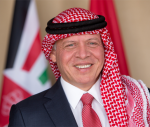You are here
Bulgaria urged to stop locking up stateless people by detained heart doctor
By Thomson Reuters Foundation - Feb 18,2019 - Last updated at Feb 18,2019
LONDON — A cardiac specialist, who was locked up in Bulgaria for six weeks because he has no nationality, has called on the government to stop treating stateless people like criminals.
Sager Al Anezi, who is from a large stateless population in Kuwait called the Bidoon, qualified as a doctor after moving to Bulgaria in 2007 and was training to become a heart surgeon.
The doctor said stateless people could not go to university in Kuwait, but he was able to obtain a passport from a third country — which he did not want to name — with Kuwait's blessing which allowed him to study abroad and led him to Bulgaria.
But when he tried to renew that passport the third country refused and he applied for formal recognition as a stateless person in Bulgaria. He was locked up on January 3 when he chased up on that application.
"I've been treated worse than a criminal, but I don't know what my crime is," Anezi told the Thomson Reuters Foundation by phone from Bulgaria's capital Sofia.
"How can you lock people up simply for having no citizenship?"
Bulgaria's ministry of interior did not respond to a request for comment sent around midday Friday.
Anezi, 29, who was released late Friday, said he must report to police weekly and cannot return to work.
His lawyer Valeria Ilareva said there was an order for Anezi's deportation but it didn't state a destination so he was left in limbo.
Bulgaria introduced a procedure a couple of years ago to allow stateless people to apply for formal recognition of their status, potentially leading to residence rights and a travel document.
Ilareva said government figures showed more than 130 stateless people had been detained in the last decade and the real number was probably higher as stateless people were often wrongly ascribed a nationality.
"Bulgaria must stop locking up stateless people. There's no reasonable prospect of their removal so detention is like a punishment," she said.
Legal experts with knowledge of Anezi's case said it underscored the vulnerability of millions of stateless people globally who are sometimes called "legal ghosts" as they are not recognised by any nation and are deprived of basic rights.
There is no reliable estimate for the number of stateless people although the United Nations has previously said there could be 10 million and launched a campaign in 2014 to end statelessness by 2024.
The European Network on Statelessness (ENS), an advocacy group, published a report on Monday criticising Bulgaria for "serious shortcomings" in its treatment of stateless people.
"Anezi was abruptly taken from his vital work as a doctor and locked up simply for lacking a nationality," said ENS Director Chris Nash.
"His story illustrates the waste of human potential caused by a flawed system which needs urgent improvement."
There are an estimated 100,000 Bidoon in Kuwait which says they are nationals of other countries. Human rights groups say the majority have no state.
Anezi said his father and grandfather were both born in Kuwait but were denied citizenship. His mother is a Kuwaiti national but women cannot pass their nationality to children.
"I want the simplest of things — an ID card," Anezi said. "I want to get on with my training. I really don't want much. I just want to be treated as a human."
Related Articles
Tens of thousands of stateless people in oil-rich Kuwait will be offered citizenship of the impoverished African nation of Comoros to end their decades old problem, the government said Sunday.
KUWAIT CITY — Kuwait put to death five people on Thursday, including a man convicted of involvement in a 2015 Daesh suicide bombing that kil
KUWAIT CITY — A Kuwaiti court trying 29 suspects in a deadly bomb attack on a Shiite mosque freed 11 defendants Thursday, while the main acc
















